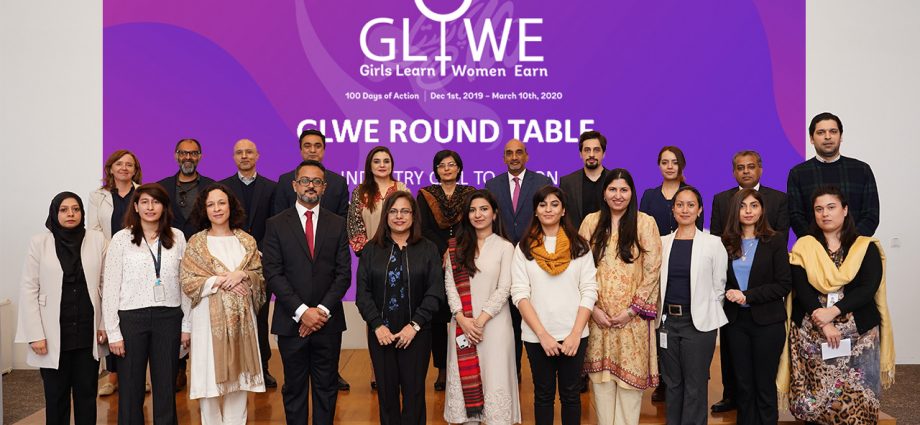ISLAMABAD ( PRESS RELEASE )
In continuation ofits efforts for women empowerment,inclusion and participation in the country’s socioeconomic uplift, Telenor Pakistan has joined forces with The World Bank for Girls Learn Women Earn (GLWE) initiative. A round table event was held at Telenor Pakistan headquarters 345 where the significance of female participation in the country’s labor force was discussed. The session was attended by Dr. Sania Nishtar, Kashmala Tariq, representatives from key telecom players, microfinance banks, and policymakers.
The participants exchanged insights and ideas on the challenges at hand and shared solutions to improve the female labor participation rate in the country, which currently stands at only 26%. The ambition of GLWE is to support awareness, advocacy and action to support girls’ education and women’s participation in the labor force, encouraging a shared commitment and larger effort to raise women’s participation in the economy to 45% by 2025. Some of the factors that hinder economic contribution by females is limited mobility, societal attitudes towards working women and overwhelming household responsibilities among others. To empower and enable more women to step out of their homes for work, leaders from various organizations pledged support and initiatives to improve financial inclusion of females, impart skillset of the future and help develop a platform for women that enables harassment reporting.
“We are extremely pleased to join hands with The World Bank on their ‘Girls Learn Women Earn’ initiative and have come up with action items for the industry and society at large that aim at empowering women” said Irfan Wahab Khan, CEO Telenor Pakistan and Head of Emerging Asia Cluster Telenor Group. “Being a part of the fast evolving tech industry, we aim to help impart skill set of the future that includes design thinking and tools that are shaping up the job market. Together, through the GLWE initiative, we look forward to further lift and develop females for the future.”
Elaborating on the initiative, Sardar Muhammad Abubakr, Chief Digital and Strategy Officer Telenor Pakistan, mentioned that as a showcase of Telenor Pakistan’s commitment, the company intends to leverage the internal design thinking program, Activate, to upskill 100 aspiring women entrepreneurs in March.
“Our goal for the ‘Girls Learn Women Earn’ initiative is to empower girls and women for inclusive growth as they are central to driving a vibrant economy,” said Illango Patchamuthu, World Bank Group’s Country Director for Pakistan. “For Pakistan to become an upper middle-income country by the time it approaches its 100th anniversary, we need to take solid actions now to strengthen women’s contribution to the economy.”
In her keynote statement, Special Assistant to the Prime Minister on Social Protection and Poverty Alleviation, Dr. Sania Nishtar stated, “Women empowerment is at the heart of Ehsaas framework. The program is highly skewed towards uplifting of disadvantaged women through a multi sectoral approach, enabling them to become contributing members of the economy. With Ehsaas Development Partners’ Forum in place and public private partnership in the pipeline, the multi stakeholder construct of Ehsaas solutions offers wide-ranging opportunities to exploit synergies. Adding further, she elaborated, “ To bring about more sustainable change, Ehsaas constantly follows the fifty percent rule for women inclusion in all Ehsaas initiatives including interest free loans, scholarships and asset transfers. Kafaalat that has recently been launched by the PM will ensure financial and digital inclusion of 7 million disadvantaged women across Pakistan who will now benefit from the monthly stipend of Rs. 2,000 along with access to bank accounts and affordable smart phones. Also, upcoming Tahafuz programme is a precision safety net that will provide preferential support for women against catastrophic shocks.”
Launched on Dec 1, 2019, Girls Learn, Women Earn (GLWE) is a national awareness, advocacy and action campaign aimed to create awareness about the significance of educating girls and increasing female participation in the labor force.

